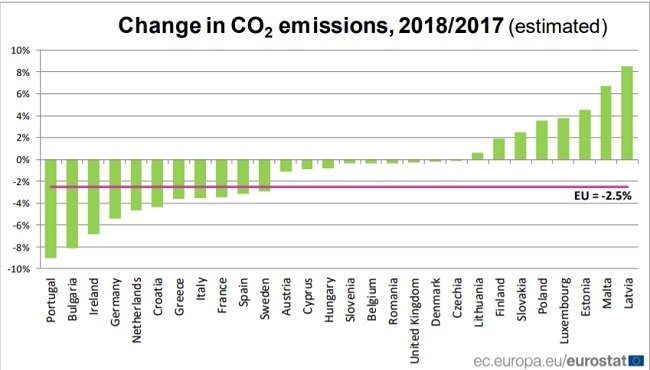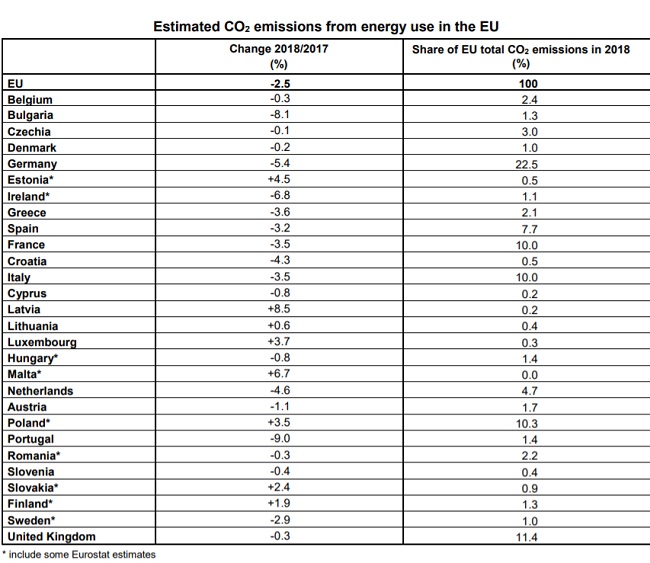Analytics, Ecology, EU – Baltic States, Latvia
International Internet Magazine. Baltic States news & analytics
Thursday, 25.04.2024, 04:14
Latvia records steepest increase of CO2 emissions among EU member states in 2018 - Eurostat
 Print version
Print versionIt should also be noted that imports and exports of energy products have an impact on CO2 emissions in the country where fossil fuels are burned: for example if coal is imported this leads to an increase in emissions, while if electricity is imported, it has no direct effect on emissions in the importing country, as these would be reported in the exporting country where it is produced.
Largest falls in CO2 emissions in Portugal and Bulgaria, highest increases in Latvia
According to Eurostat estimates, CO2 emissions fell in 2018 in a majority of EU Member States, with the highest decrease being recorded in Portugal (-9.0%), followed by Bulgaria (-8.1%), Ireland (-6.8%), Germany (-5.4%), the Netherlands (-4.6%) and Croatia (-4.3%). Increases were registered in eight Member States: Latvia (+8.5%), ahead of Malta (+6.7%), Estonia (+4.5%), Luxembourg (+3.7%), Poland (+3.5%), Slovakia (+2.4%), Finland (+1.9%) and Lithuania (+0.6%).










 «The Baltic Course» Is Sold and Stays in Business!
«The Baltic Course» Is Sold and Stays in Business!

